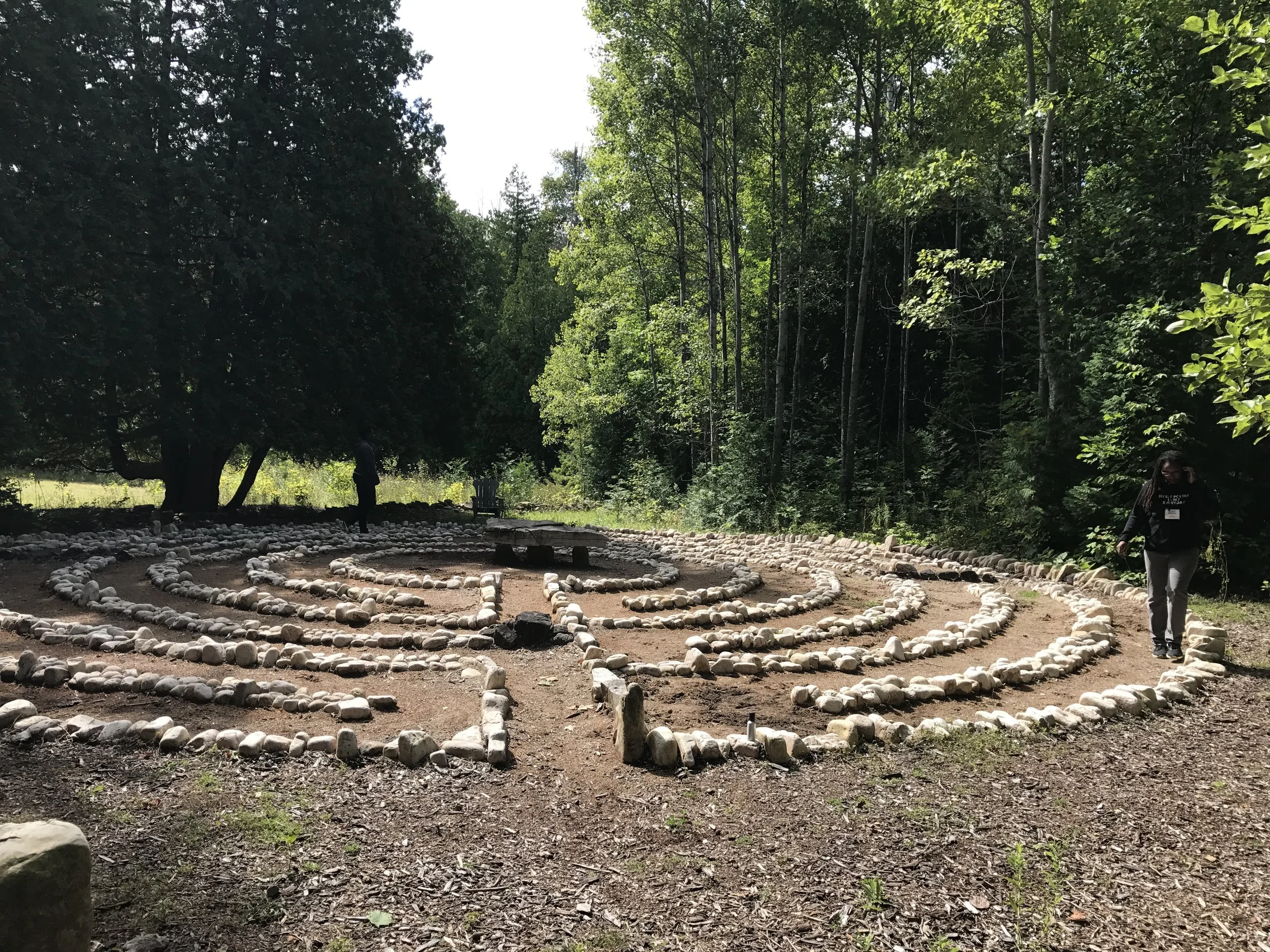wasting poetry
/I’m not sure the world needs more great poets. I do know that it needs more people who write poetry.
And by “write poetry” I mean read poetry, and strive to understand poetry, and talk about poetry with other people, and in this way get closer to languaging the truths of our lives and our worlds.
Because if we do this, we’re less alone. And our alone-ness, our desperate clinging to the illusion of our separateness, is part of our ruin as a species.
When we talk about poems together, especially poems that engage in a bravery or vulnerability to which we aspire, the vigilance that keeps us alone in the guise of keeping us safe can relax. Of course it doesn’t always -- certainly it doesn’t in spaces full of multisyllabic jargon we barely understand or in hierarchical spaces full of writers jockeying for a grade or a professor’s attention.
But when it does relax, when we are in spaces that feel safe and open and holding and fueled by curiosity, we can find or make a community that saves us.
And we all need saving, every day. Every day I need to be rescued from my loneliness, and some days, some really good days, it’s poetry that does it.
Another part of our ruin is the way we are trained to accept things as they are, or to be so daunted by things as they are as to be at one end of the spectrum immobilized and at the other, catapulted to the singular answer of burning it all down.
It’s all so human, each response. Freeze, flee, fight.
But so is the instinct to tinker, to pull apart, to reassemble, to seek patterns and recreate them, to look at nature and make a machine, to look at a machine and make art, to look at art and remember the lake by the tree we climbed until there were no more branches, no more leaves, and we could see the sky above it so clearly it comes back to us annually in dreams.
Looking at poems as made things, taking them off their dusty shelf or down from the tower and deeply inquiring about how they function, how they might be different if different choices had been made, about the thousand possible whys behind each decision that led to this complete thing presented to the world as whole -- that’s a practice that can help un-ruin us.
We spend so much of our lives presented with things as they are -- the church with its rules about who gets to spend eternity where and why, the school with its bell schedule and single-file lines and principal-teacher-student hierarchy, the judicial system with its specificities and their wildly and purposefully inequitable application… and it’s an illusion. We labor under this illusion of these and so much else as permanent, impermeable, unchangeable, whole.
And this is how poetry is taught. Here is a poem. What does it mean? What techniques do you see exhibited from your vocabulary list?
Which tells us, even art is for someone else. By someone else. Not to be questioned, not to be pulled apart or used for our own ends.
And this is some of how the ruin continues, by wasting poetry.
How different it is to say, this is a thing a person made. A person like you, making choices every minute of every day. This is a thing made by a person, the way old white men invented the court system, the principal determined the bell schedule, the Pope wrote the latest edict on the timeline and parameters related to the annulment of marriage.
How different it is to say, let’s look at those choices. Let’s think about how this thing, the system of this poem, would be different if other decisions were made. Let’s talk about why a certain choice may have been made, how it affects us as the reader. Let’s look at the structure, the components, the techniques, and see how we can turn those into tools for our own use. Our own making.
And if we are, even for a moment, not alone. And if we are able to look at the built systems around us, even on a miniature scale, and see them as things we can transform. Then I think there’s hope for us. I know there is. I know there is.
•
p.s. -- I wrote a book about how to do this, even if you're not a poet (yet) or a teacher of poetry (yet). It's called Gathering Voices, and you can find it here.
